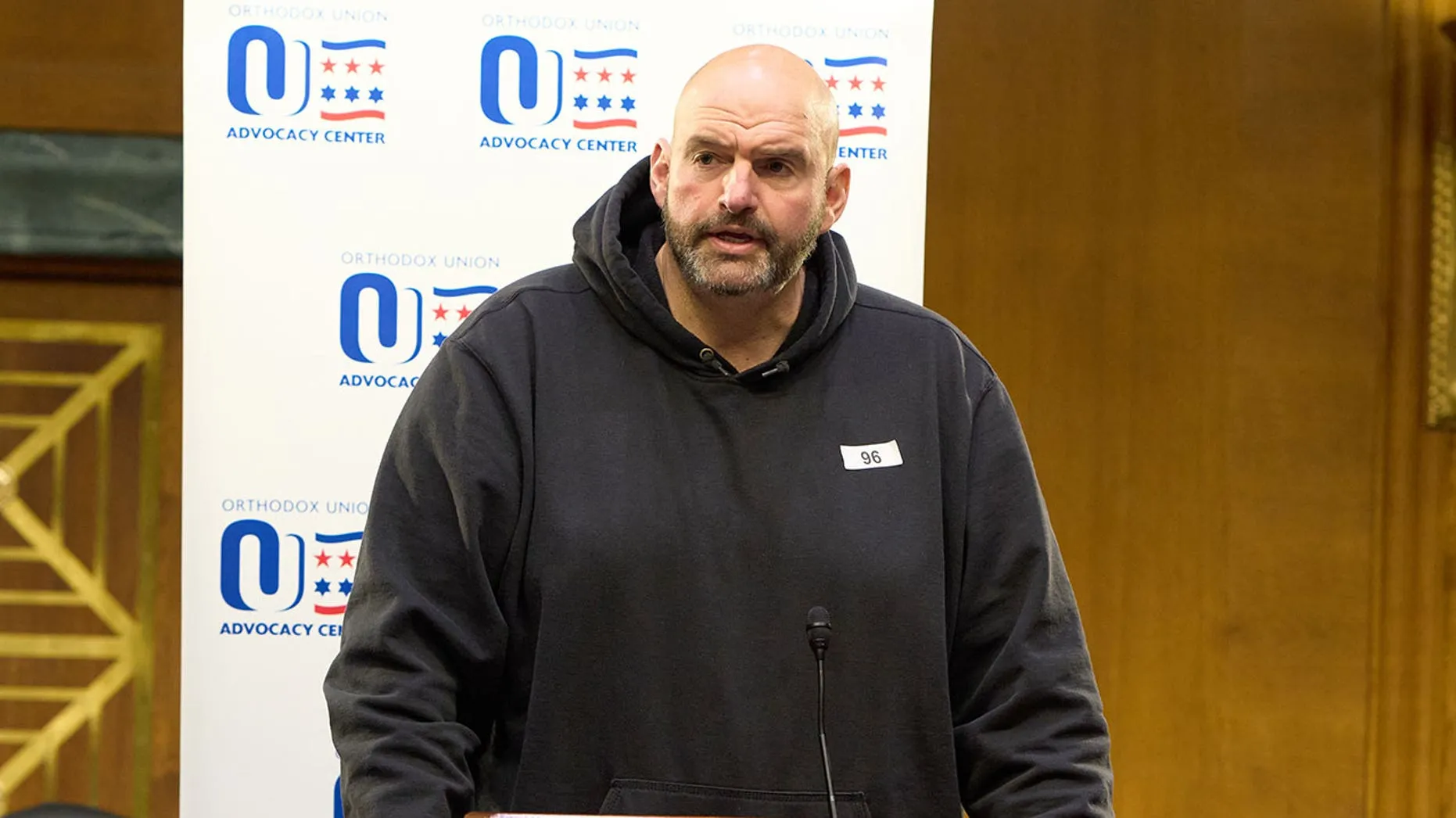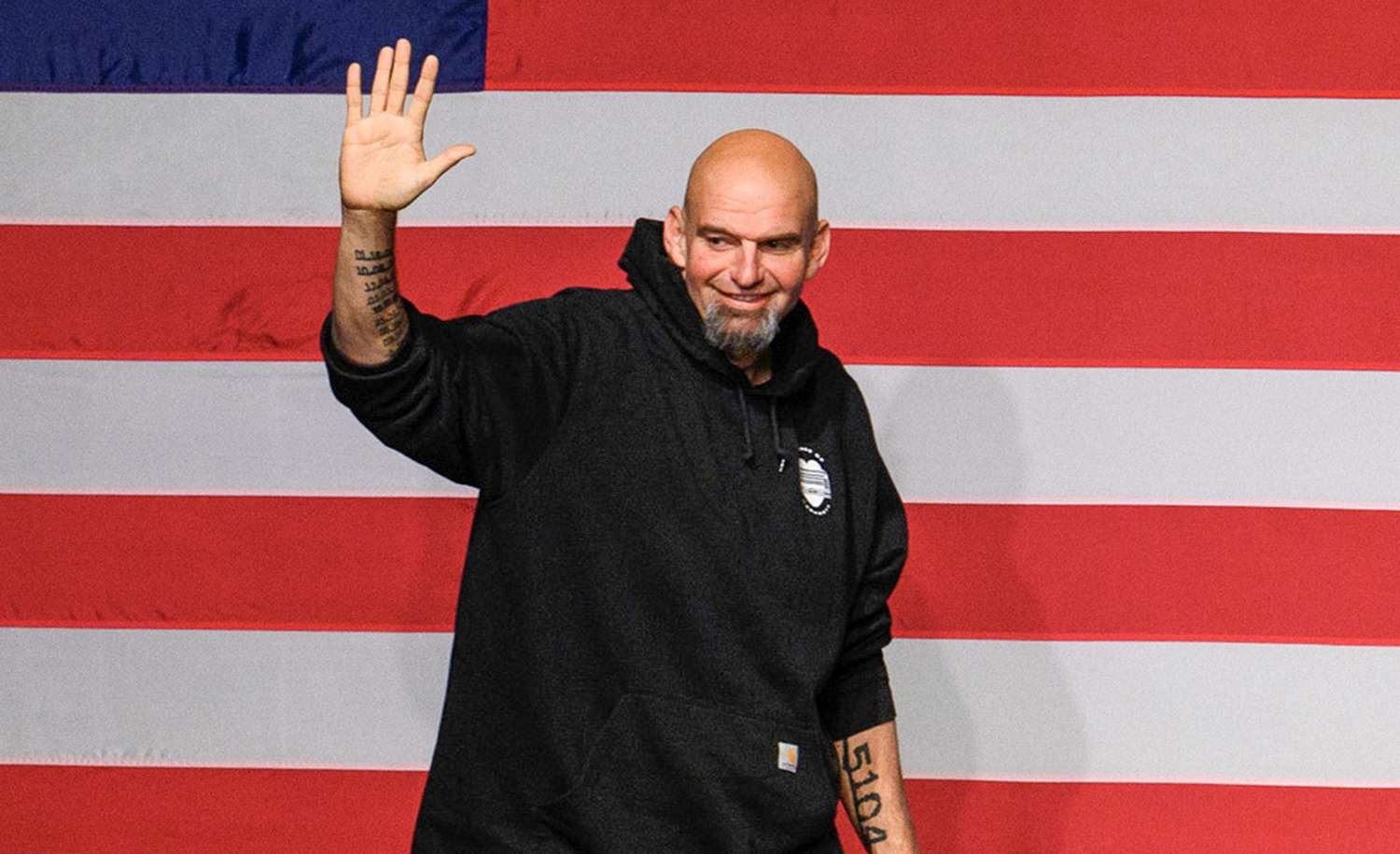Senator John Fetterman of Pennsylvania recently distanced himself from what he perceives as extreme positions on certain social issues, explicitly stating he’s “not woke” during discussions on squatters’ rights.
In an interview with the New York Post, Fetterman, known for his straightforward style and casual dress even within the formal settings of the Senate, criticized the concept of squatters’ rights as a misunderstanding of law and order.
Fetterman, who previously served as the mayor of Braddock, Pennsylvania, reflected on his experiences with the issue at the local level. He expressed astonishment at scenarios where squatters could claim rights to a property simply because they occupied it during the owner’s absence.

Senator John Fetterman (Credits: Brittanica)
Drawing a parallel to personal property theft, he questioned the logic behind a system that might allow someone to claim rights over a stolen car after holding it for a certain period. This discussion comes despite broader concerns in places like New York City, where property owners face challenges in removing squatters.
Fetterman’s stance aligns with his broader critique of what he views as “soft-on-crime” policies, which he discussed in the context of a recent tragedy involving the killing of NYPD Detective Jonathan Diller.
Fetterman’s Remarks Emphasize His Alignment Within the Democratic Party
Highlighting the accused killer’s extensive criminal record, Fetterman underscored the need for stringent legal consequences, including life imprisonment without parole for such serious offenses.
Fetterman’s comments underscore his positioning within the Democratic Party as he seeks to carve out a space centered on practical governance rather than ideological extremes.
This approach is evidenced by his distancing from the progressive wing of the party, as noted in his conversations with NBC News, where he identified himself not as a progressive but as a Democrat committed to pragmatic solutions on issues like abortion rights, immigration, and foreign policy concerning Israel.
His political stance, coupled with the recent resignation of three of his top communication staffers who reportedly left for more liberal positions, indicates a strategic recalibration as Fetterman aligns himself more with the center of the Democratic spectrum.

Sen. John Fetterman (Credits: Orthodox Union Advocacy Center)
This recalibration suggests an attempt to appeal to a broader electorate by focusing on common-sense solutions and law and order, potentially aiming to widen his support base as he directs his role in the Senate.
These moves reflect Fetterman’s unique approach to governance and his continued commitment to addressing issues directly affecting citizens, maintaining his distinctive identity in the political landscape.























